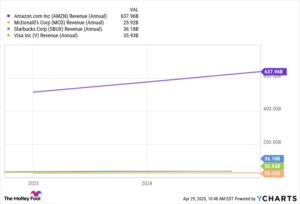North Korea Reports Development of AI-Powered ‘Suicide Attack Drones’

North Korea’s Advancements in Drone Technology
Introduction to North Korea’s Drone Capabilities
In recent announcements, North Korea has revealed the development of advanced drone technology that includes what it describes as "suicide attack drones" powered by artificial intelligence (AI). This development raises concerns globally about the implications of AI in military applications and the overall security situation on the Korean Peninsula.
Understanding “Suicide Attack Drones”
What Are Suicide Drones?
Suicide drones, also known as loitering munitions, are unmanned aerial vehicles designed to fly into their targets, detonating upon impact. Their primary function is to carry explosives to a targeted area without the need for a pilot.
Features of North Korea’s Drones
According to North Korean reports, these drones are equipped with sophisticated AI systems that allow them to autonomously identify and strike targets. Features likely include:
- Autonomous Navigation: The ability to operate without direct human control.
- Target Recognition: Advanced sensors and algorithms for identifying specific targets, such as military installations or vehicles.
- Precision Strikes: Enhanced accuracy in hitting designated targets, reducing collateral damage.
Concerns Over AI-Driven Military Technology
Global Reactions
The announcement from North Korea has sparked international concern. Experts argue that the use of AI in weapon systems poses various risks, including:
- Loss of Human Oversight: Relying on AI may lead to escalation in conflicts without human judgment in critical situations.
- Potential for Misuse: These technologically advanced weapons could fall into the hands of rogue states or non-state actors, increasing the risks of terrorism or destabilization.
- Arms Race: Other nations may feel compelled to advance their own drone capabilities to counteract North Korea’s developments.
The Military Implications for North Korea
Strategic Advantages
North Korea’s development of AI-powered drones can provide several strategic benefits:
- Increased Strike Capability: With enhanced drone technology, North Korea could expand its ability to conduct surprise attacks, effectively altering the military balance in the region.
- Remote Warfare: By deploying drones, North Korea can carry out operations without putting its personnel at risk, potentially increasing its willingness to engage in military actions.
- Symbol of Technological Progress: Showcasing advanced drone technology serves as a propaganda tool, highlighting North Korea’s scientific achievements and potentially boosting national pride.
The Path Ahead
International Monitoring
As North Korea continues to develop its drone technologies, international communities and organizations, such as the United Nations, may need to strengthen monitoring efforts to assess the impact of such advancements on regional stability.
- Dialogue Initiatives: Engaging North Korea in dialogue about military technology could help ease tensions and establish frameworks for responsible technology use.
- Collaborative Defense Strategies: Nations in the region may develop collective strategies to counteract potential threats posed by North Korea’s drone capabilities.
Conclusion
North Korea’s claim of creating AI-powered suicide drones marks a significant moment in military technology. This advancement not only impacts regional security but also poses broader questions about the role of AI in warfare and the need for global dialogue on the responsible use of such technology.






